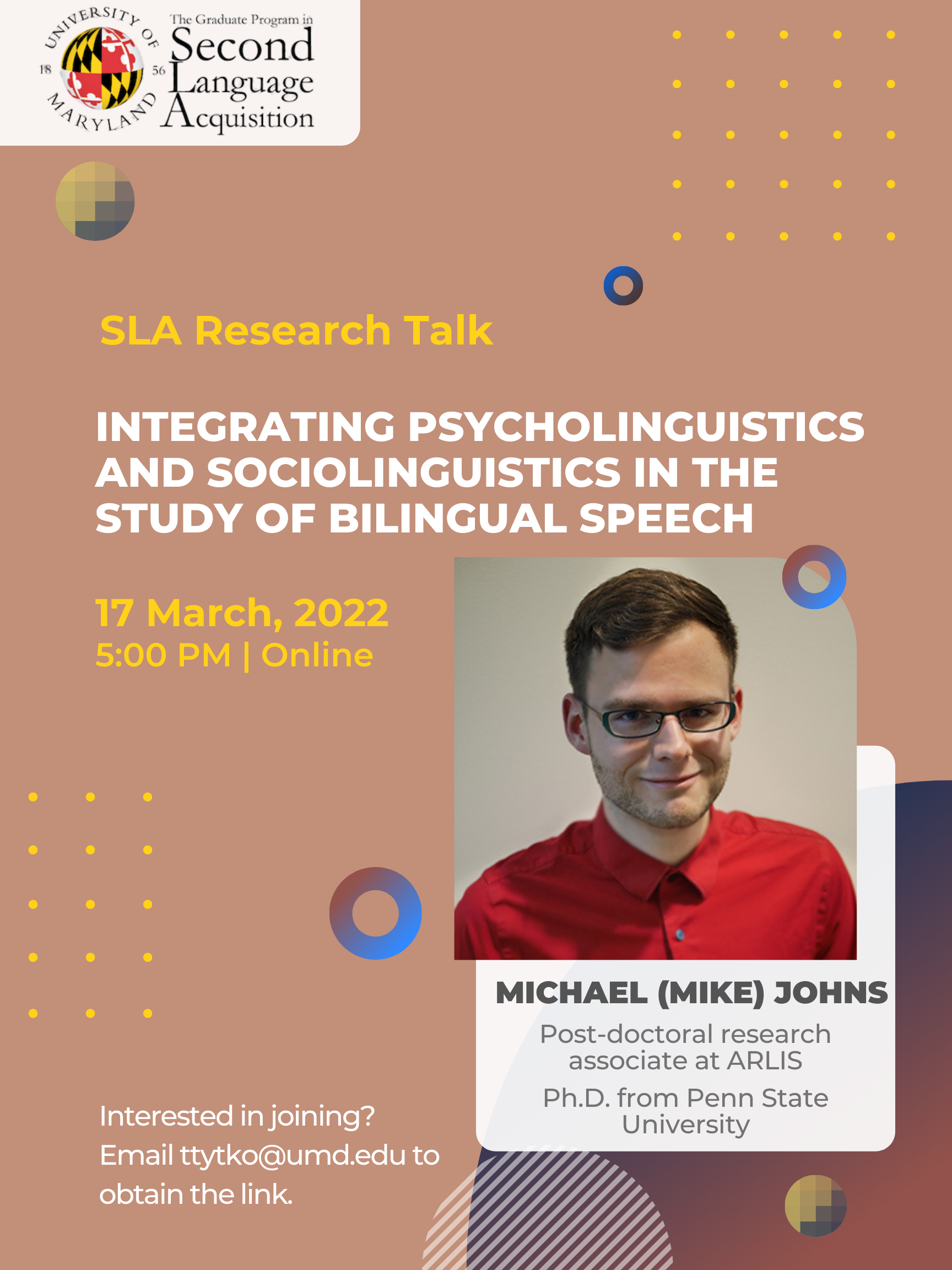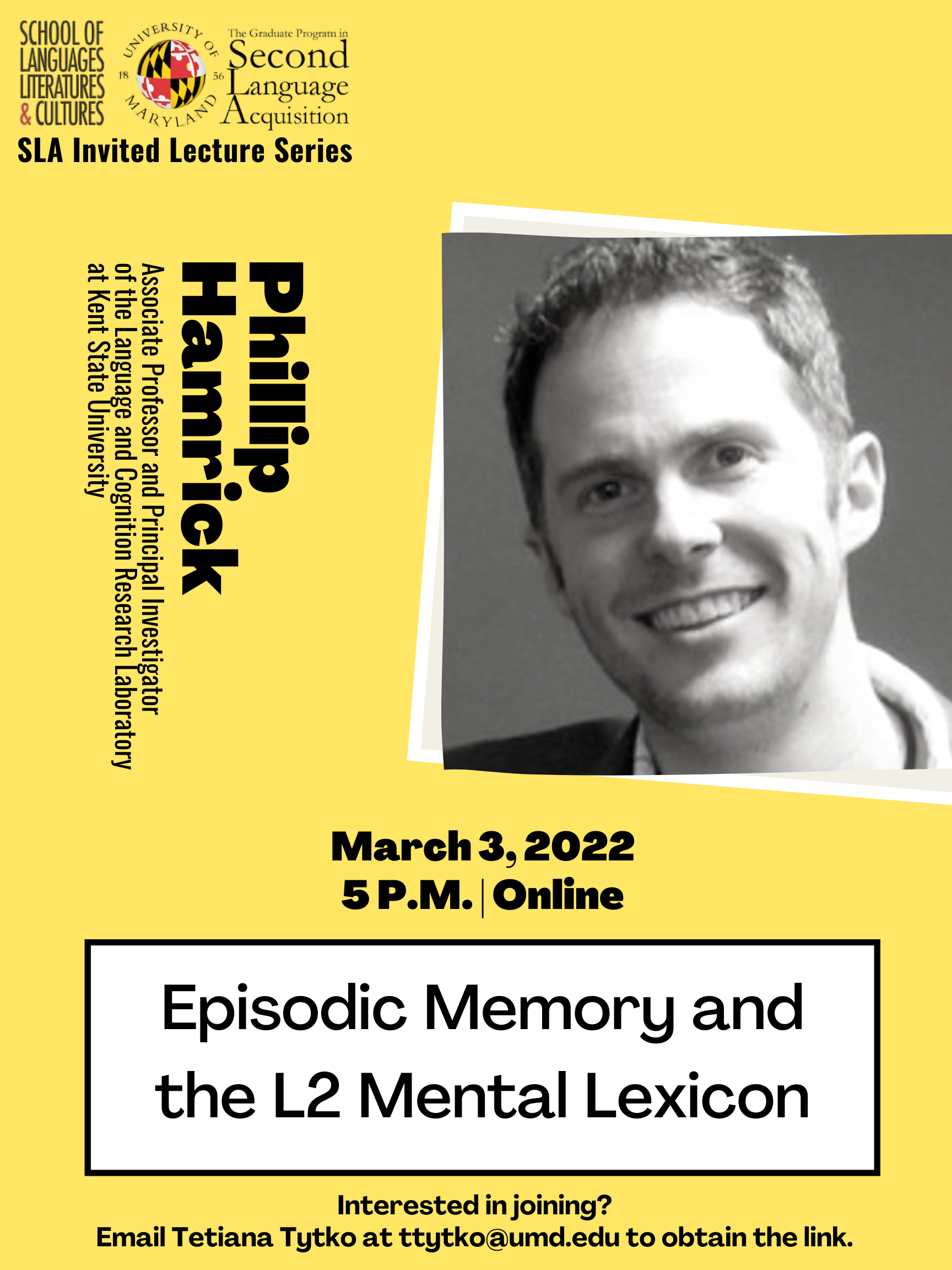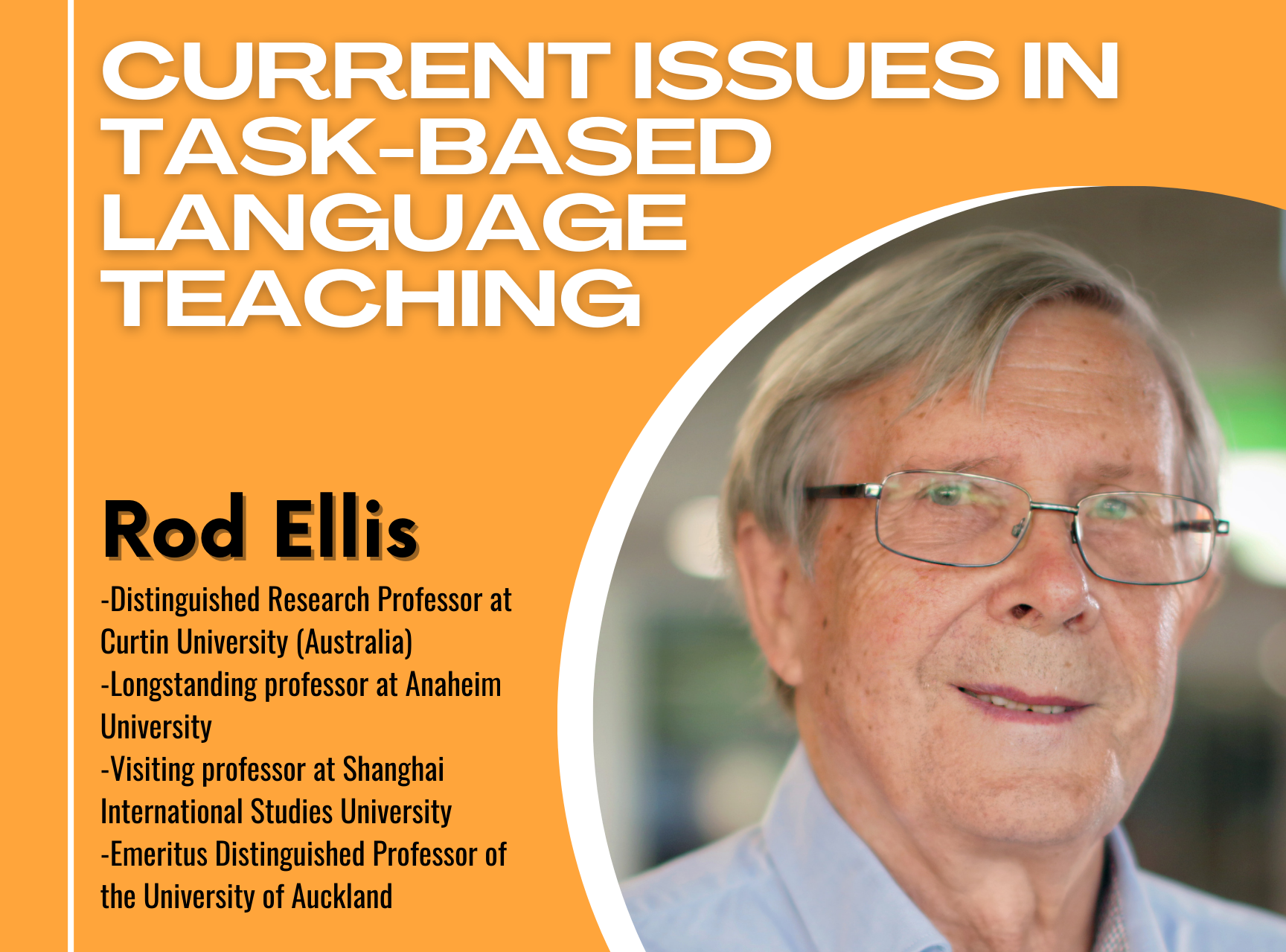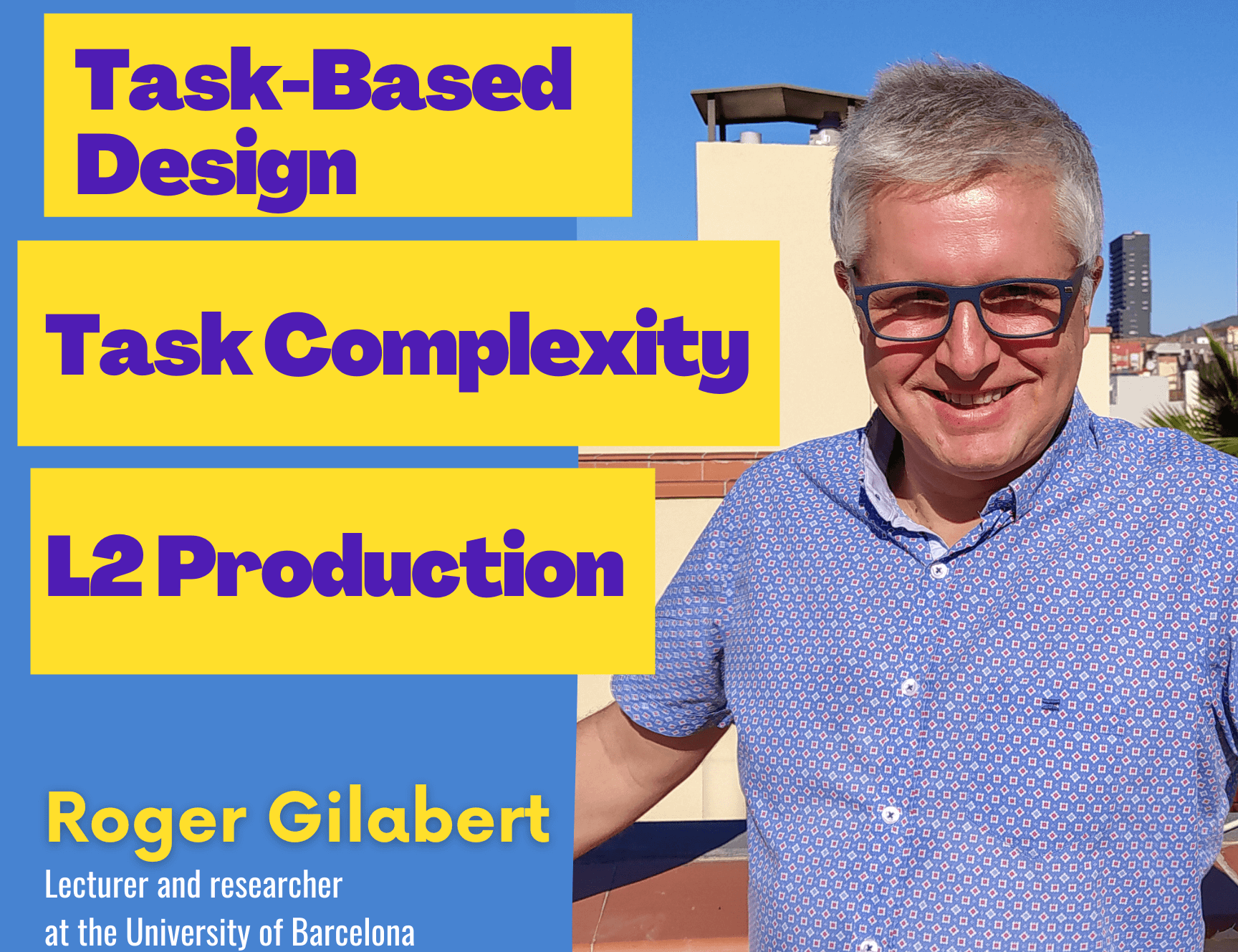SLA Invited Lecture: Michael (Mike) Johns

SLA Invited Lecture: Michael (Mike) Johns
Michael (Mike) Johns is currently a post-doctoral research associate at ARLIS, and the primary project with which he is involved focuses on how neurostimulation modulates lexical tone learning. He completed his M.A. and Ph.D. at Penn State University, and his dissertation focused on the production and processing of Spanish-English codeswitched speech.
This Thursday, he will give a talk titled "Measuring and modulating effortful listening: Developing interventions to address diverse listening challenges."
Abstract: What happens in the lab does not always align with what happens in spontaneous production, and vice versa. Recently, there has been a push to use sociolinguistic data to test psycholinguistic models of language production and to use psycholinguistic methods to examine hypotheses that stem from spontaneous production. In this presentation, I will discuss two studies that do exactly this. In the first study, I will present data from a spoken corpus of Spanish-English bilingual speech and how it can be brought to bear on recent proposals on speech planning. In the second study, I will present evidence from a language processing task that challenges existing notions of what does and does not constitute a codeswitch.
Suggested readings:
MacDonald, M. C. (2013). How language production shapes language form and comprehension. Frontiers in Psychology. doi:10.3389/fpsyg.2013.00226.
Poplack, S., & Dion, N. (2012). Myths and facts about loanword development. Language Variation and Change, 24, 279-315.







